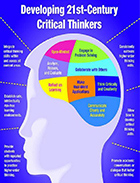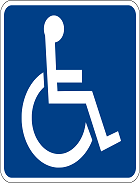Why children misbehave.
Why children misbehave.
 Children end up misbehaving at some point or the other during their growing years. While it is often called ‘disobedience’, some believe it to be a learning phase.
Children end up misbehaving at some point or the other during their growing years. While it is often called ‘disobedience’, some believe it to be a learning phase. Why do children misbehave?
Children tend to misbehave due to numerous reasons:
-
Seek attention
Children may misbehave to seek attention that they crave from their parents and teachers. They may end up troubling their friends or their siblings, to attract the attention of the teachers/parents.
-
Out of anger
Misbehaviour arises when children try to get back at someone who has made them feel bad. This could be siblings, parents, friends or even teachers.
-
Due to different emotions
A child may behave badly when he/she is sad or anxious about something.
-
Stress or trauma
Children misbehave when they are stressed or are facing a trauma. A child may feel upset when he/she does not have any control over a person/situation. Peer pressure is another cause leading to misbehaviour.
-
Age related behaviour
Most often, misbehaviour is due to a child’s age or stage of development. Younger children are known to misbehave and be disobedient.
-
Student-teacher relationship
Children misbehave when they are unable to connect with a teacher. They also tend to misbehave to express their displeasure for a subject or a teacher.
-
Lack of confidence
Children may feel inadequate and may end up bragging, boasting or fighting with others. They may even withdraw themselves from any interaction due to low confidence. Parents and teachers can address this by motivating the children.
-
Mimic others
Children mimic the behaviour around them. A misbehaviour could be something they picked up from their peers, friends or even parents.
How to control misbehaviour?
Misbehaviour is bad, but it can be controlled by taking the following steps:
-
Develop a connect with children
Parents and teachers can talk to the children and develop a connect with them. Disconnect between children and parents/teachers is one of the main reasons for mood swings in children. Bridging the gap by talking and spending time with each other is essential to develop connect.
-
Play with them
The best way to understand a child is to play with him/her. According to research, children express their emotions in a better way when playing, than mere communication.
-
Help children overcome their emotions
Children often throw tantrums and it is advised to help them sort the issue by being compassionate and understanding. Parents/teachers can spend time with the child, trying to understand things from his/her perspective before helping him/her.
-
Give children the space
Misbehaviour is more of an emotional outburst and hence, the children should be given space and encouragement to get over it.
-
Talk the issues
Parents and teachers can ask the children to talk about any issues bothering them. Discussing the concerns is an effective way to resolve the issues.
-
Control emotions
Teachers and parents need to control their emotions while tackling a child who misbehaves. Any anger shown towards the child may further damage the relationship.
 Tips to Discipline children in the classroom:
Tips to Discipline children in the classroom: Children tend to misbehave in the classroom as well. Teachers can follow certain tips to bring about discipline in the classroom:
-
Do not resort to punishing
Irrespective of any misbehaviour in the classroom, it is advised not to resort to punishment until it is absolutely necessary. Negative reinforcements like punishment will only worsen a child’s behaviour.
-
Positive Reinforcement
Positive reinforcements include words of praise and motivation. Teachers can encourage the students to let go of their bad behaviour and praise them for their good behaviour.
-
Guide the children
Children often look up to their teachers and parents for guidance. Teachers can guide the students and set an example on how to behave, what to do and what not to do.
-
Prevent bad behaviour
Teachers can prevent bad behaviour by talking to the children as and when any issue arises. Issues like stress, bullying and emotional distress should be addressed immediately.
-
Treat all children equally
Favouritism is an aspect that usually leads to misbehaviour. Teachers can avoid having favourites in the classroom and can treat all the children equally.
Despite the tantrums, it is important for the teachers/parents to understand that misbehaviour can be easily overcome by being affectionate towards the child and by encouraging him/her to behave.





















